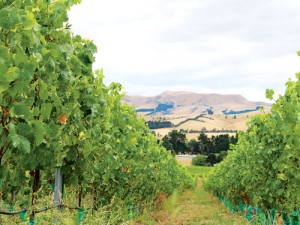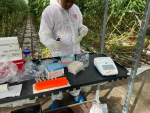Understanding the ecology of the vineyard as a whole is the focus of a new $7 million research programme being undertaken by NZ Winegrowers.
The programme is co funded by the government (through MBIE), and will run over the next seven years, in an effort to increase vineyard longevity throughout the country.
That longevity is dependent on a variety of issues, which will all come under the umbrella of the new research programme, says Simon Hooker, NZW’s GM of Research and Innovation.
“This programme is a fundamental shift in the way we have run the research programme. Often it is easy to fund (projects) issue by issue, but what we have decided to do is make some big, long-term gains. A lot of the research is designed around the better management of pests and diseases, a reduced reliance on chemical interventions and the strong science underpinning our sustainability credentials.”
Dr Hooker says there are three initial research aims.
Vineyards as an ecosystem – Quantify the effects of management on the biota, physical and chemical components of the vineyard. The effects of production practices on vineyard ecology, leading to innovative, more resilient research-based approaches to pest and disease management.
Under-vine management, biota and virus. The impacts of understory on mealybugs, other insects and virus. Biological control of mealybugs. Management of grass grubs in vineyards.
And thirdly pathogen management – trunk diseases and virus.
Dr Hooker says the research aims to collate the entirety of the vineyard ecology – something that has not been undertaken either in New Zealand or on the international scene.
“Similarly, analyses of the variance in soil chemistry under different management regimes in various agricultural systems are reasonably well studied, but little work has been conducted in vineyards.
“The programme will provide a new level of integration between scientific disciplines, bringing together expertise that encompasses viticulture, micro organism biology, entomology, pathology, virology and environmental science.”
Given the programme is over seven-years, Dr Hooker says there will be room to change through the course of it, depending on initial outcomes.
“We are not coming into this with pre conceived ideas about what outcomes we might gain. It will be totally driven by the data and the science. There will be some very clear short term outcomes, but we are hoping for a lot of serendipity.”
By that he means there may be outcomes arising that are totally unexpected, such as happened in the mechanical thinning research.
“When we began that programme we thought that the thrashing of the vines would cause botrytis issues, so we monitored botrytis levels throughout the programme. What we discovered though was the thinning process actually reduced botrytis levels. That was total serendipity.”
In all 24 vineyard blocks will be monitored over the next seven years, all based in either Marlborough or Hawke’s Bay.
The Ecosystems Programme is the second major co-funded research programme undertaken by NZW and government in the past two years. The first was the Lifestyle Wines programme, another seven year project, which began in 2013.












